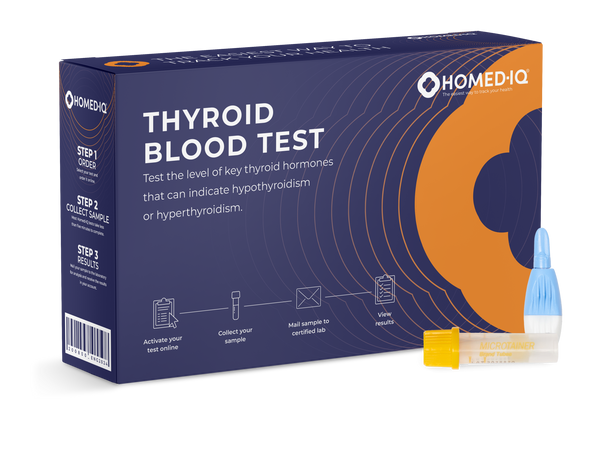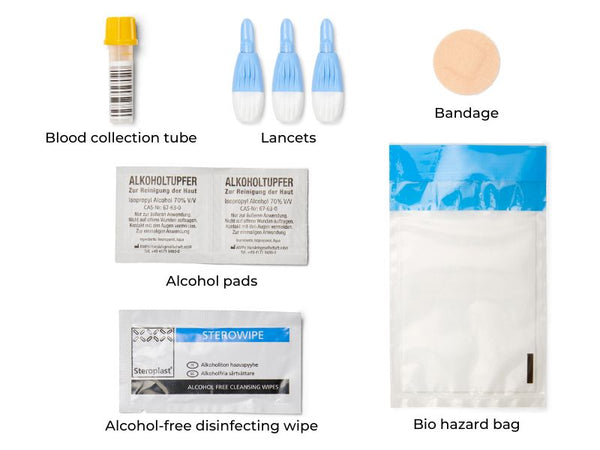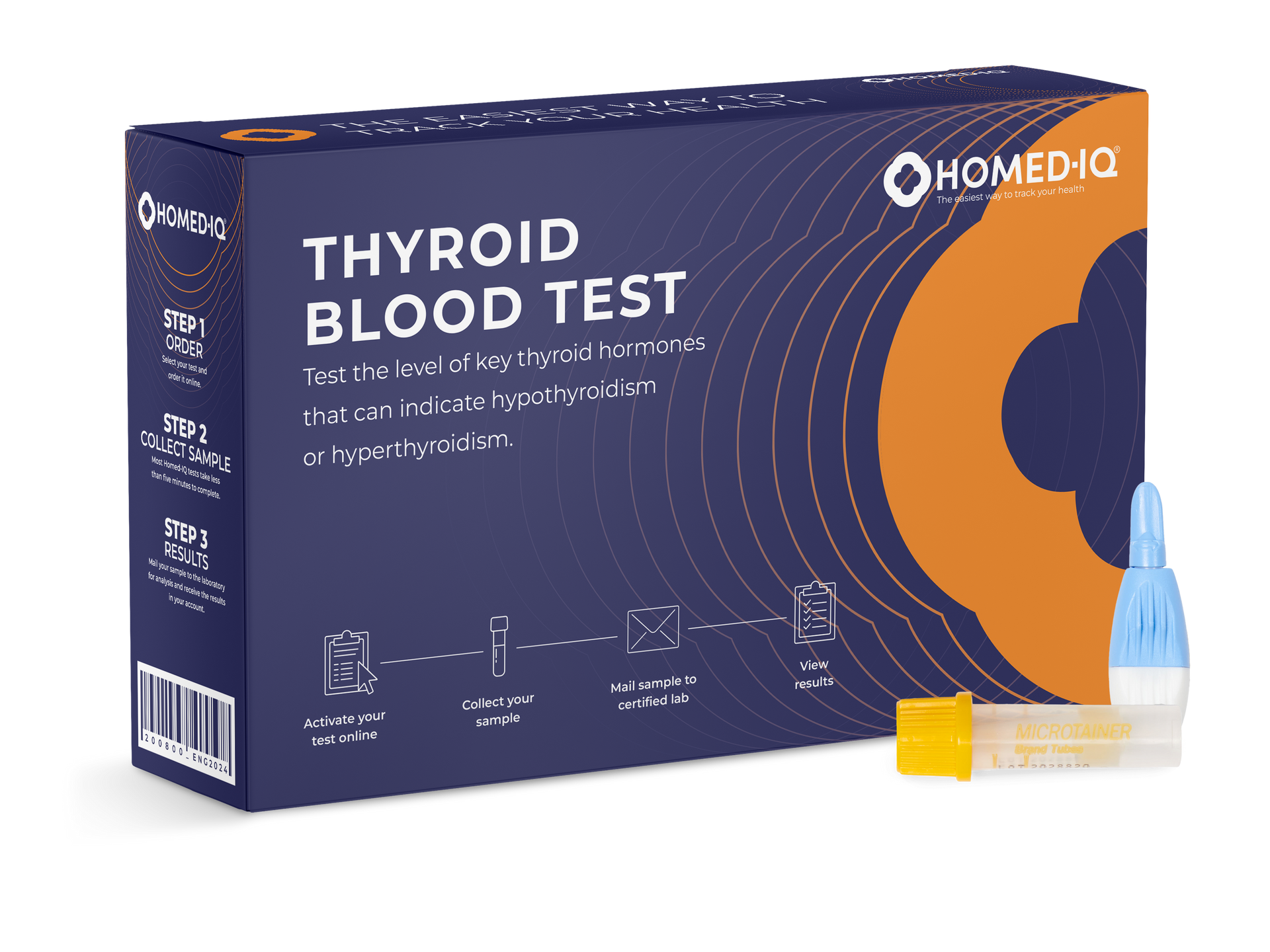Thyroid Blood Test
Regular price
€45,00
FREE SHIPPING
An overactive or underactive thyroid can cause unpleasant symptoms like fatigue, anxiety, weakness, weight changes, and mood swings, affecting your overall well-being. This home thyroid test measures Thyroid Stimulating Hormone (TSH) levels in your blood, a key marker that can indicate the presence of hyperthyroidism or hypothyroidism.
Test mode:
Finger prick test
0
€45,00
FAQs
Who should take a thyroid self test?
Why should I order a thyroid self test through Homed-IQ?
What causes hypothyroidism?
What causes hyperthyroidism?
Is there treatment for hyper- and hypothyroidism?
How accurate is this Thyroid Blood Test?
What are thyroid nodules?
How does it work?
-
![]() 1
1Order your test
Fast and discrete letterbox delivery
-
![]() 2
2Activate & take your sample
Video instructions included
-
![]() 3
3Laboratory analysis
ISO - Certified lab network
-
![]() 4
4Receive your results
Easy access through mobile








